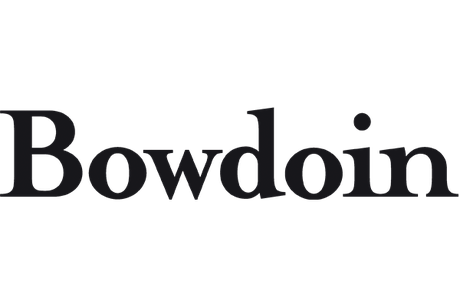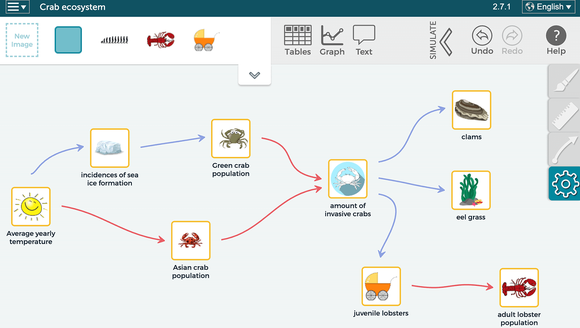Teaching and Learning Ecosystem Modeling
Investigating how middle schoolers develop understandings about ecosystem modeling.
This project seeks to understand how middle school students’ participation in scientific modeling informs their classroom-based citizen science investigations, and how enhancing teacher’s' learning about modeling changes both the opportunities students have to participate in scientific modeling and their understanding of change within ecosystems. This research is conducted in partnership between researchers at GMRI, Vanderbilt University, and Bowdoin College.
This project seeks to:
- Identify the degree to which the development of teachers’ comfort and proficiency with modeling and variability changes the opportunities their students have to participate in those practices.
- Understand how students interpret scientific models of ecosystem function and conceive of the relationships across different models of the same system.
- Identify how students’ conceptions of variability inform their understandings of ecosystem models.
- Demonstrate how teachers’ engagement in a Professional Learning Community affects their comfort and proficiency with modeling ecosystems and variability.
This project engages middle-school students in building and revising models of variability and change in ecosystems and studies the learning and instruction in these classroom contexts. Students construct and critique models that they and peers invent and – through the lens of models – develop foundational knowledge about the roles of variability and change in ecosystem functioning, as well as the roles of models and argumentation in scientific practice. Citizen science-based classroom investigations developed by GMRI provide the context for student work.
Across three years, this project is investigating how, and to what extent, students' use of different forms of modeling inform how they investigate ecosystems. A parallel effort is investigating how the development of teachers’ comfort and proficiency with modeling impacts how students engage with modeling and understand variability and change in ecosystems. Insights from this research will inform the design of professional development for teachers around data analysis and interpretation, as well as around how student understanding of modeling develops with sustained support — both of which are practices at the heart of scientific literacy.
Project Team
External Collaborators
- Rich Lehrer, Ph.D.
Professor Emeritus
Department of Teaching and Learning
Vanderbilt Peabody College - Alison Miller, Ph.D.
Assistant Professor of Education
Bowdoin College
Project Sponsor
This project is funded by the National Science Foundation, award #2010119.
Read More
-
![Developing a Modeling Orientation to Science]()
Developing a Modeling Orientation to Science
The Developing a Modeling Orientation to Science project, funded by the National Science Foundation, aims to engage middle school students in utilizing several modeling approaches …
Press Clips
-
![Learning Ecosystems Northeast (LENE): All Systems Go]()
Learning Ecosystems Northeast (LENE): All Systems Go
LENE is a network of peer communities where educators in local regions join forces, committed to empowering the next generation of climate stewards.
Announcements
-
![Oceans of Possibilities]()
Oceans of Possibilities
Experts from across GMRI are providing the Maine State Library system with resources and opportunities to support the 2022 summer reading theme: Oceans of Possibilities.
Tidings
-
![The Value of Community Science]()
The Value of Community Science
We learn from experts about community science — scientific research and monitoring driven and controlled by local communities — and what makes it such an …
Perspectives






